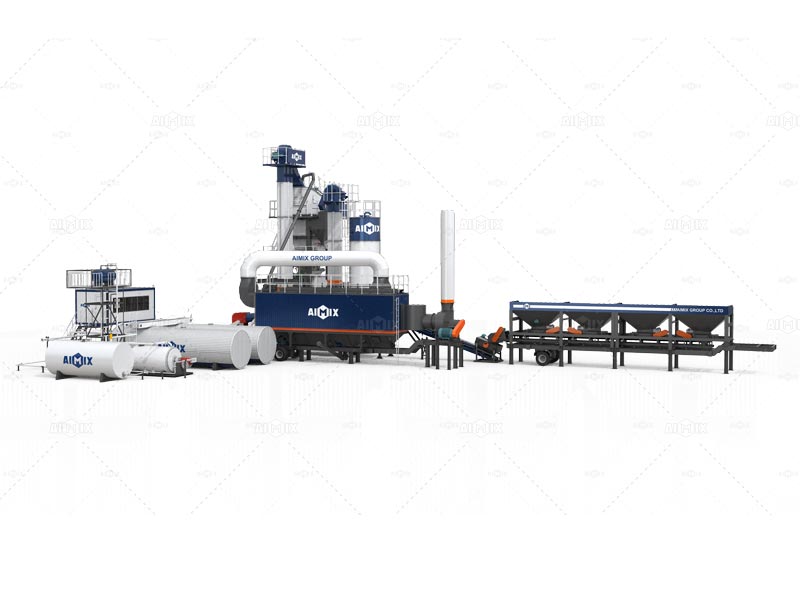


Find expert guidance on selecting an asphalt plant for your 15 km highway project, tailored for daily paving requirements of 700 to 1000 tons of asphalt.
Choosing the right asphalt plant is a key decision for highway construction projects. For a 15 km highway that needs daily paving of 700 to 1000 tons of asphalt, selecting a suitable plant is not just about production capacity. It also affects the paving speed, asphalt quality, and project cost. In this article, I will guide you on how to select the right asphalt plant step by step based on real project needs.
The first step is to confirm the actual daily asphalt demand. For your project, you need 700 to 1000 tons per day. This daily output will directly determine the plant’s required capacity per hour. To complete daily paving efficiently within a reasonable working time, you should choose an asphalt plant with a practical hourly capacity that matches your schedule.
If your project operates 10 hours per day, you need a plant that can produce 70 to 100 tons per hour. If your team plans to work fewer hours per day, the required plant capacity per hour should be higher. This calculation helps you avoid both production delays and equipment overcapacity.
After confirming the production demand, the next step is to decide which type of asphalt plant is most suitable for your project.
For highway projects, mobility is often an important factor. If your project requires relocating the plant along the construction route, a mobile asphalt plant(https://aimixgroup.com/asphalt-mixing-plant/mobile-type/) offers great flexibility. It can be installed and dismantled quickly, reducing transportation time and costs. However, if your highway project is concentrated in one area and you do not need to move the plant, a stationary asphalt plant may provide better stability and higher capacity.
Mobile plants are easy to relocate and quick to install, but their maximum capacity is usually lower than that of stationary plants. Stationary plants are more suitable if your project site has enough space and stable access to raw materials.
After considering mobility, it is also important to compare the types of asphalt mixing processes.
There are two main types of asphalt plants: drum mix and batch mix. Each type has its advantages depending on your paving quality requirements and production speed.
Drum mix plants offer continuous production. They are efficient for projects that need fast paving and consistent asphalt supply. If your highway project focuses on long, uninterrupted paving sections, drum mix plants can keep up with your daily output target smoothly.
Batch mix plants provide more flexibility in asphalt recipe adjustments. If your project needs high-quality asphalt with precise control over each batch, or if you expect to produce different asphalt mixes, the asphalt batch plant is a better choice. However, they usually require more investment and may have slightly slower output compared to drum mix plants.
After selecting the mixing type, you should also pay attention to the supporting equipment.
The asphalt plant must work together with related equipment like cold aggregate feeders, bitumen tanks, dust collectors, and finished asphalt silos. Proper supporting equipment ensures smooth production and high-quality asphalt output.
For a project that needs continuous paving, sufficient asphalt storage capacity is essential. It prevents paving interruptions caused by production pauses. Choosing a plant with large asphalt silos can help maintain steady paving and reduce waiting time for the paver.
Now that you understand the technical selection, you should also consider after-sales service and local support.
Highway construction projects often face tight schedules and unexpected challenges. Selecting an asphalt plant supplier that provides local service, fast spare parts delivery, and experienced engineers can reduce your risk of downtime. Reliable service ensures that your project will not suffer from long equipment stoppages.
Additionally, having a supplier that understands your local construction standards and asphalt mix requirements can help you start production faster and meet project specifications smoothly.
